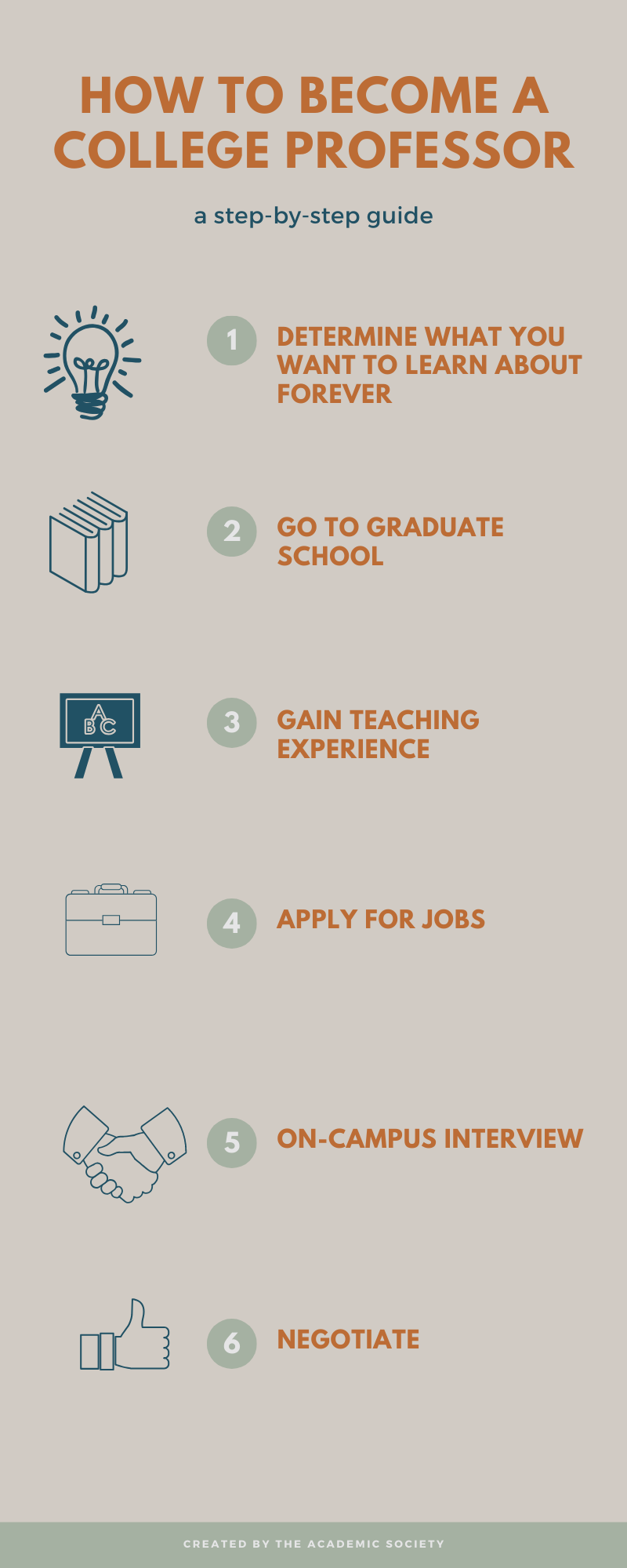If you’ve ever dreamt of sharing your knowledge and passion for a subject with eager students, then becoming a college professor in the USA may be the perfect career path for you. As an esteemed profession that allows you to educate and inspire others, it’s important to understand the steps involved in achieving this goal. From obtaining a higher education degree, gaining teaching experience, and demonstrating expertise in your field, this article will guide you through the process of becoming a college professor in the USA. So, let’s explore the exciting journey that awaits you in the pursuit of shaping young minds and making a lasting impact in academia.
Steps to Becoming a College Professor in the USA
If you have a passion for teaching and a desire to make a difference in the lives of students, becoming a college professor in the USA may be the perfect career path for you. As a college professor, you have the opportunity to not only educate and inspire young minds, but also contribute to cutting-edge research and advancements in your field. While the journey to becoming a college professor requires dedication and hard work, the rewards are undoubtedly gratifying. Here are the essential steps to follow in order to achieve your goal of becoming a college professor in the USA.
This image is property of images.squarespace-cdn.com.
Earn a Bachelor’s Degree
The first step on your journey to becoming a college professor is to obtain a bachelor’s degree. This usually involves completing a four-year undergraduate program in a relevant field of study. While there is no specific major requirement to become a college professor, it is advisable to choose a field closely related to the subject you wish to teach. During your undergraduate studies, take advantage of opportunities to develop your writing, critical thinking, and communication skills, as these are crucial skills for success in academia.
Obtain a Master’s Degree
After completing your bachelor’s degree, the next step is to pursue a master’s degree. This typically involves completing a two-year graduate program in your chosen field. A master’s degree is essential for many teaching positions at the college level, as it provides you with a deeper understanding of your subject area and the necessary pedagogical skills to effectively teach students. During your master’s program, take advantage of research opportunities and strive to build relationships with faculty members who can provide mentorship and guidance.

This image is property of s3.amazonaws.com.
Pursue a Doctorate Degree
While a master’s degree can open doors to teaching positions, earning a doctorate degree is often necessary for tenure-track positions and higher-ranking faculty positions at universities. A doctorate degree, typically a Ph.D., requires several years of specialized study and research in your field. Pursuing a doctorate degree allows you to delve deep into your area of expertise and contribute to the academic community through original research. It also provides opportunities for teaching assistantships, grants, and fellowships that can support your education and develop your teaching and research skills.
Gain Teaching Experience
To become a successful college professor, it is crucial to gain teaching experience. One way to accomplish this is by working as a teaching assistant during your graduate program. Teaching assistants often have the opportunity to lead discussions, grade assignments, and even deliver lectures under the guidance of a faculty member. Additionally, many colleges and universities offer part-time or adjunct teaching positions that allow you to gain valuable teaching experience while pursuing your advanced degrees.

This image is property of s3.amazonaws.com.
Develop Research Skills
In addition to teaching, research is a fundamental aspect of being a college professor. To excel in academia, it is important to develop strong research skills. This involves staying up-to-date with the latest advancements in your field, conducting original research, and publishing your findings in reputable academic journals. Participating in conferences and presenting your research can also enhance your professional visibility and network with other scholars in your field.
Publish Research Work
Publishing your research is not only a way to share your knowledge and contribute to your field but also a vital aspect of building a strong academic reputation. When starting your career as a college professor, focus on producing high-quality research papers and book chapters in collaboration with other scholars. Seek guidance from your mentors and colleagues on the best journals and publishing platforms to target. A strong publication record demonstrates your expertise and can open doors to future research collaborations and job opportunities.

This image is property of www.wgu.edu.
Network with Professional Organizations
Networking is an essential part of any career, and academia is no exception. Joining professional organizations related to your field of study can provide valuable networking opportunities and access to conferences, workshops, and resources that can enhance your professional development. Attend conferences and meet fellow scholars to exchange ideas, collaborate on research projects, and learn about job openings. Building a strong professional network can significantly increase your chances of finding teaching positions and advancing in your academic career.
Build a Strong Curriculum Vitae
Your curriculum vitae (CV) is an essential document that highlights your qualifications, accomplishments, and relevant experiences. It serves as a summary of your academic journey and is crucial when applying for teaching positions. Ensure that your CV reflects your educational background, teaching experience, research publications, conference presentations, and any awards or honors you have received. Seek guidance from faculty members or mentors to ensure your CV is comprehensive, well-organized, and tailored to each application you submit.
This image is property of images.squarespace-cdn.com.
Prepare for the Job Application Process
As you near the completion of your doctoral degree or gain sufficient teaching experience, it is important to start preparing for the job application process. This involves researching potential job openings, tailoring your application materials to each position, and preparing for interviews. Seek feedback on your teaching philosophy statement, cover letter, and teaching portfolio to ensure they effectively showcase your skills and passion for teaching. Practice interview scenarios and be prepared to discuss your research, teaching strategies, and future goals. Dedicate time and effort to make your application stand out from the competition.
Continuously Improve and Stay Current in Your Field
Becoming a college professor is not the end of the journey but rather the beginning of a lifelong commitment to learning and growth. Continuously improve your teaching and research skills by attending professional development workshops, pursuing further certifications, and staying informed about the latest advancements in your field. Engage in conversations with colleagues, join study groups, and participate in mentoring programs to gather new perspectives and enhance your teaching methods. Embrace new technologies and teaching strategies to keep your courses relevant and engaging for your students.
In conclusion, becoming a college professor in the USA requires dedication, continuous learning, and a passion for both teaching and research. By following these steps and staying committed to your academic journey, you can embark on a fulfilling career as a college professor, inspiring and educating the next generation of students.

